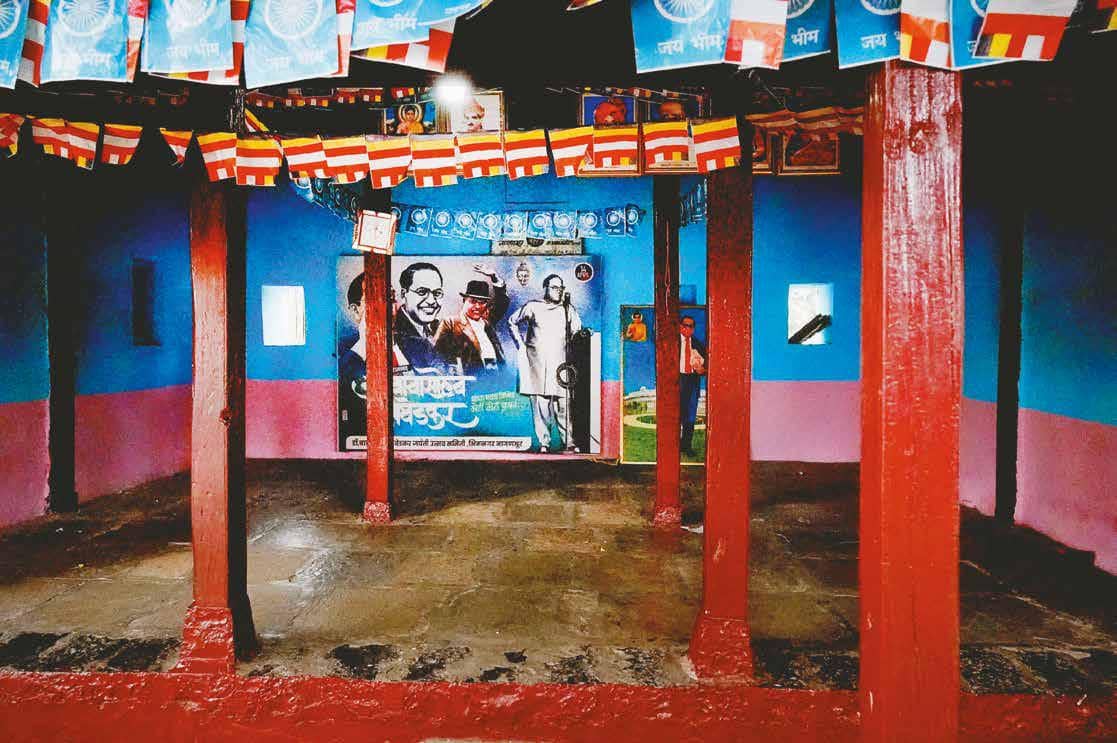Prøve GULL - Gratis
No Haircut For Dalits
Outlook
|August 21, 2024
Despite being illegal, despite the years of independence and progress India has made the practice of untouchability continues to plague the country's Dalit citizens

SANTOSH Nagoji takes a deep breath and walks toward the hole-in-the-wall men's salon on a Thursday evening. He needs a haircut but dares not enter the 10 x 10 sq feet parlour, painted with pink walls, and take up the empty seat next to two customers. He knows what the barber's response will be. Standing at a distance from the salon's threshold, he still curtly asks, “Kesa kapnar ka (will you give me a haircut)?"
The hairdresser is about to nod when a customer getting a facial stops him. Taking one look at Nagoji he coldly says, "Dalit aahe toh (he is a Dalit)."
In most places, barber shops serve as a space for grooming, hygiene, occasional gossip, and social interaction. For Nagoji a well-built 33-year-old from the Mahar caste, who works on contract as a delivery driver in Mumbai, it is an everyday place of exploitation, discrimination, and humiliation. A place to avoid, a no-go zone.

"No haircut for Dalits," a strictly enforced caste-based prohibition, is a custom, zealously practised in the village of Nagansur, Tondlur, Navindagi and others in Solapur's Akkalkot taluka on the Maharashtra-Karnataka border. The dominant caste of Lingayats-a politically strong community-maintains an upper hand over the scheduled castes of Mahars, Matangs, Dhor and Chambhar living in these villages. In Nagansur of the 8500-odd population, Lingayats constitute the majority and only 1500 are scheduled castes and tribes. They treat members of Other Backward Castes (OBCs) and Muslims as relatively equal citizens. Dalits, however, are ostracised; haircuts in barber shops being one of the examples.
Denne historien er fra August 21, 2024-utgaven av Outlook.
Abonner på Magzter GOLD for å få tilgang til tusenvis av kuraterte premiumhistorier og over 9000 magasiner og aviser.
Allerede abonnent? Logg på
FLERE HISTORIER FRA Outlook
Outlook
Free the Word
Book bans are about fear, control and the desperate need to manage public imagination
7 mins
July 11, 2025

Outlook
Yeh Duniya Agar Mil Bhi Jaye to Kya Hai
Guru Dutt, whose birth centenary falls this July, created cinematic masterpieces amid the fog of his own uncertainty
6 mins
July 11, 2025

Outlook
When the Words Stop
Our worst algorithms have come home to haunt us. The nightmare is no longer something we dream up. It is dreamt on our behalf
16 mins
July 11, 2025

Outlook
Rath Jatra
Is Mamata Banerjee's embrace of Lord Jagannath the latest counter to the BJP's Ram-centric politics?
5 mins
July 11, 2025
Outlook
Zan, Zindagi, Azadi
As missiles fall silent—for now—it's time to explore whether the heart of the Iran-Israel conflict lies in a deeper battle over culture and values
3 mins
July 11, 2025

Outlook
The She Voter
Political parties in Bihar are looking to woo women voters—who constitute almost half of the vote bank—ahead of the state Assembly election
7 mins
July 11, 2025

Outlook
Veil, Women and Warfare
Policies—whether in the West or in the Muslim world—are imposed on women, not developed with them or for them. How they dress becomes shorthand for community honour, nationalism or piety
8 mins
July 11, 2025

Outlook
Forever Hotel
This novel is a flawed, luminous, maximalist love letter to Kolkata’s layered soul
4 mins
July 11, 2025

Outlook
Regimentation
The US has zero moral authority to want to tell the Tehran regime to behave itself or be nice to its own people
5 mins
July 11, 2025
Outlook
The Way We War
Modern warfare is a shape-shifting entity and the information explosion has expanded the battlespace far beyond the battlefield
5 mins
July 11, 2025
